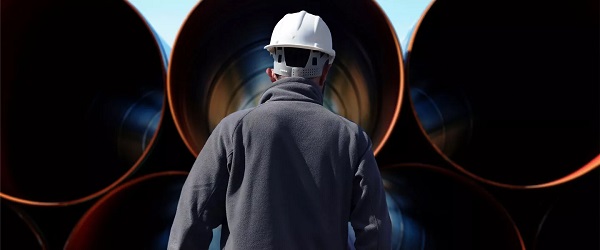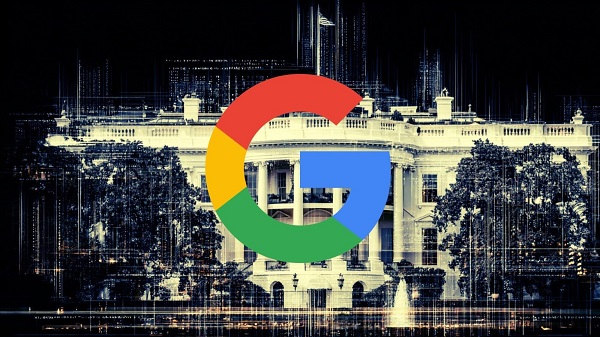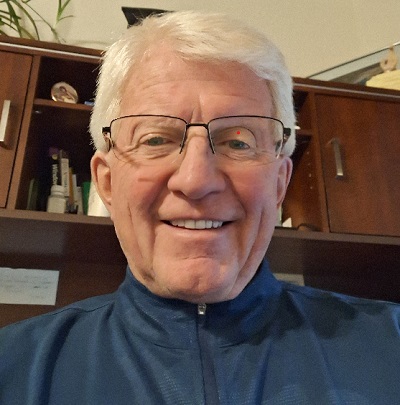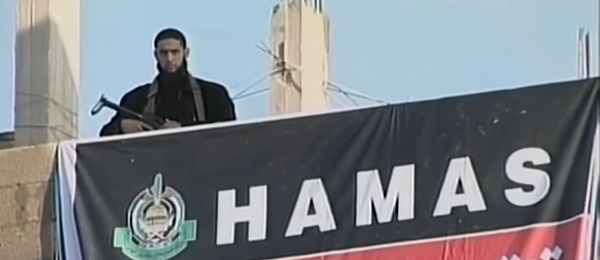2025 Federal Election
‘Coordinated and Alarming’: Allegations of Chinese Voter Suppression in 2021 Race That Flipped Toronto Riding to Liberals and Paul Chiang

“There were Chinese officials following Bob Saroya around.” The Bureau investigates claims of voter intimidation in the Toronto-area riding now at the centre of Canada’s election.
As Canada’s snap election unfolds under the shadow of foreign interference—following the resignation of a Liberal MP accused of suggesting his Conservative rival could be handed to Chinese officials for a bounty—The Bureau has uncovered new allegations that Chinese agents attempted to intimidate voters and the Conservative incumbent in the same Markham–Unionville riding during the 2021 federal campaign. The revelations raise urgent concerns that similar tactics may be resurfacing in Toronto-area ridings with large communities of immigrants from China and Hong Kong.
Paul Chiang, a former police officer who unseated longtime Conservative representative Bob Saroya to win Markham–Unionville for Team Trudeau in 2021, stepped down as a candidate late Monday after the RCMP confirmed it was reviewing remarks he made to Chinese-language media in January. During that event, Chiang reportedly said Conservative candidate Joe Tay—a Canadian citizen wanted under Hong Kong’s National Security Law—could be taken to the Chinese Consulate in Toronto to claim a bounty.
Tay, a former Hong Kong broadcaster whose independent reporting from Canada has drawn retaliation from Beijing, rejected Chiang’s apology, calling his comments to Chinese-language journalists “the tradecraft of the Chinese Communist Party.” He added: “They are not just aimed at me; they are intended to send a chilling signal to the entire community to force compliance with Beijing’s political goals.” His concerns were echoed by dozens of NGOs and human rights organizations, which condemned Chiang’s remarks as an endorsement of transnational repression.
There is no indication Chiang was aware of the intimidation campaign alleged by senior Conservative sources during the 2021 vote. He has described his January remarks as an ill-considered joke, a serious lapse in judgment, and emphasized that he intended no harm or wrongdoing.
According to multiple senior figures from Erin O’Toole’s 2021 Conservative campaign—who spoke on condition of anonymity due to the sensitivity of intelligence disclosures—O’Toole’s team was briefed by Canadian intelligence that Chinese officials were actively surveilling Saroya during the election. One source recalled being told that “there were Chinese officials following Bob Saroya around,” and that “CSIS literally said repeatedly that this was ‘coordinated and alarming.’”
“Bob lost because the Chinese vote abandoned him,” the source added.
When asked to respond, O’Toole—who stepped down after the 2021 loss—acknowledged awareness of voter intimidation reports but did not say whether CSIS had informed his team about alleged Chinese surveillance targeting Saroya.
“Our candidate Bob Saroya was a hardworking MP who won against the Liberal wave in 2015,” O’Toole wrote. “He won in 2019 as well, but thousands of votes from the Chinese Canadian community stayed home in 2021. We heard reports of intimidation of voters. We also know the Consul General from China took particular interest in the riding and made strange comments to Mr. Saroya ahead of the election. It was always in the top three of the eight or nine ridings that I believe were flipped due to foreign interference. The conduct of Mr. Chiang suggests our serious concerns were warranted.”
A third senior Conservative campaign source confirmed Chinese interference was a concern in multiple ridings. “The concern was related to China… we had candidates that were being intimidated,” the source said.
Speaking specifically to Saroya’s campaign, the source said that in the early stages of the 2021 election, Saroya and a close family member believed they were performing well. “He said he had never had such a good reaction at the doors, and he assumed he was getting the Chinese traditional vote,” they recalled.
But the campaign later learned from CSIS that Saroya was allegedly being followed by suspected Chinese security personnel. Intelligence assessments reportedly indicated that these actors were shadowing Saroya’s canvassing team and visiting the same homes shortly after campaign stops. While The Bureau has not confirmed CSIS’s exact conclusions, the conduct appears consistent with voter suppression tactics—paralleling public warnings issued this week by Canada’s SITE Task Force.
The source added that CSIS interviewed Saroya. “He was convinced he was being tailed at times,” they said. The Bureau has independently confirmed with two sources that Saroya was interviewed by CSIS.
Saroya has declined to comment.
While Saroya is not named among alleged victims, a January 2022 “Special Report” from the Privy Council Office—sourced from over 100 CSIS documents and reviewed by The Bureau—stated that a small number of MPs in 2021 reported concerns for their families, reputations, privacy, and re-election chances due to “targeted” CCP activity.
Another section of the report details threats and coercion strongly resembling the emerging picture in Markham. It stated that Chinese diplomats, public security officers, and intelligence officers had monitored Canadians, including one case in which agents threatened the parents of a student in Canada.
The Privy Council Office report also suggested that concerns about forced repatriations—or even covert renditions—of dissidents are plausible. It noted that in 2020, a Chinese police liaison worked with a Canadian law enforcement officer to repatriate an economic fugitive in the Fox Hunt campaign. Another coerced repatriation involved Chinese police bringing a fugitive’s brother and father to Canada, and the relatives could not return to China unless the fugitive returned with them.
The report also noted that “Chinese intelligence officers have discussed that Canadians can be ‘messed with’ in person and online because they are critical of China.”
Although SITE officials have not directly addressed Joe Tay’s statement that he contacted the RCMP for protection in relation to his candidacy, they acknowledged under repeated questioning from Canadian reporters Monday that the spread of Chiang’s comments through Chinese-language media fits a broader pattern of foreign interference aimed at silencing dissidents and influencing voters.
In a public statement, a SITE official said the task force is aware of ongoing efforts by authoritarian regimes to target dissidents, critics, journalists, and other members of diaspora communities. “Please remember two things. First, your vote is secret and secure—it will not be possible to find out who you vote for. And second, it is an offense to threaten someone so that they change their vote,” the official said Monday.
Canadians experiencing intimidation or threats were urged to write down the details—such as the person, location, and nature of the event—and report to local police or contact the RCMP National Security Information Network.
Though Saroya has not spoken publicly about the matter—despite repeated interview requests from The Bureau—parliamentary testimony suggests he raised his concerns within Conservative leadership. During a 2023 hearing of the House Procedure and Affairs Committee, Conservative MP Michael Cooper asked Prime Minister Justin Trudeau’s Chief of Staff, Katie Telford:
“Ten weeks before the 2021 election, Bob Saroya, then member of Parliament for Markham–Unionville, received a cryptic and threatening text message from Beijing’s Consul General in Toronto, suggesting that he would no longer be a member of Parliament after the 2021 election. Were you, the Prime Minister or anyone in the PMO briefed or otherwise have knowledge about that text message?”
Telford replied: “I can’t speak to that information.”
Meanwhile, a review of September 2021 campaign materials shows at least one controversial appearance in Markham featuring Paul Chiang, Prime Minister Justin Trudeau, and then–Public Safety Minister Bill Blair.
In a Facebook post, Chiang wrote: “Today I hosted Justin Trudeau here in Markham–Unionville. It’s time for Erin O’Toole to come clean with Canadians, and for Bob Saroya to do the same. Their commitment to re-legalize 1,500 models of assault-style firearms will put the safety of our community at risk.”
That message echoed attack ads against O’Toole displayed on a digital screen inside a Chinese grocery store in Toronto’s Scarborough–Agincourt riding, according to evidence presented at the Hogue Commission.
Even after Chiang’s resignation, Prime Minister Mark Carney has faced renewed scrutiny for expressing confidence in him just hours before the RCMP announced its investigation. Carney characterized the controversy as a “teachable moment.”
Dennis Molinaro, a former national security analyst and author of the forthcoming book Under Siege: Interference and Espionage in China’s Secret War Against Canada, criticized Carney’s handling of the issue.
“The threats the community faces are real and longstanding,” Molinaro said. “Carney’s reference to Chiang as a former police officer—as if that’s a valid reason for him to remain in the race—is ludicrous.”
“Carney has continually said next to nothing on China,” he added. “It’s one of the most significant political and geopolitical issues of our time, and he has nothing to say? Why? China is a major concern for the United States, and yet he remains silent—even after the execution of four Canadians?”
The Durham Regional Police Association—which represents officers in one of the three Ontario forces where Chiang served—issued a statement condemning Carney’s actions. “We are disappointed in the clear lack of integrity and leadership displayed by Mark Carney to stand by this candidate rather than act after such egregious actions,” the association wrote, adding that Chiang’s conduct “would be held to a higher standard for an active officer in Ontario.”
The group also rejected Carney’s defense of Chiang’s law enforcement background: “The fact that Mr. Carney used Chiang’s policing career as a shield for his actions undermines the great work our heroes in uniform do in their communities each and every day.”
Chiang’s policing career spanned nearly 30 years. He began with the London Police Service in 1992, later served with the Durham Regional Police, and retired in 2020 as a sergeant with York Regional Police. In 2013, he worked as a diversity officer in York’s Diversity and Cultural Resources Unit.
The Bureau is a reader-supported publication.
To receive new posts and support my work, consider becoming a free or paid subscriber.
For the full experience, please upgrade your subscription and support a public interest startup.
We break international stories and this requires elite expertise, time and legal costs.
2025 Federal Election
Post election report indicates Canadian elections are becoming harder to secure

Chief Electoral Officer Stéphane Perrault highlights strong participation and secure voting, but admits minority politics, rising costs, and administrative pressures are testing the system’s limits.
Monday in Ottawa, Stéphane Perrault, Canada’s Chief Electoral Officer, delivered a long press conference on April’s federal election. It was supposed to be a victory lap, record turnout, record early voting, a secure process. But if you listened closely, you heard something else: an admission that Canada’s election machinery is faltering, stretched thin by a system politicians refuse to fix.
Perrault touted the highest turnout in 30 years, 69 percent of eligible voters, nearly 20 million Canadians. Almost half of those ballots were cast before election day, a dramatic shift in how citizens take part in democracy.
“Twenty years ago, less than 7% voted early. This year, nearly half did,” Perrault told reporters. “Our system may have reached its limit.”
That’s the core problem. The system was built for one decisive day, not weeks of advance voting spread across campuses, long-term care homes, mail-in ballots, and local Elections Canada offices. It’s no longer a single event; it’s an extended process that stretches the capacity of staff, polling locations, and administration.
Perrault admitted bluntly that the 36-day writ period, the time between when an election is called and when the vote happens, may no longer be workable. “If we don’t have a fixed date election, the current time frame does not allow for the kind of service preparations that is required,” he said.
And this is where politics collides with logistics. Canada is once again under a minority government, which means an election can be triggered at almost any moment. A non-confidence vote in the House of Commons, where opposition parties withdraw support from the government, can bring down Parliament in an instant. That’s not a flaw in the system; it’s how parliamentary democracy works. But it leaves Elections Canada on permanent standby, forced to prepare for a snap election without knowing when the writ will drop.
The result? Sixty percent of voter information cards were mailed late this year because Elections Canada couldn’t finalize leases for polling stations on time. Imagine that, more than half the country got their voting information delayed because the system is clogged. And that’s when everything is supposedly working.
The April election cost an estimated $570 million, almost identical to 2021 in today’s dollars. But here’s the kicker: Elections Canada also spent $203 million just to stay ready during three years of minority Parliament. That’s not democracy on the cheap. That’s bureaucracy on retainer.
Perrault admitted as much: “We had a much longer readiness period. That’s the reality of minority governments.”
No Foreign Interference… But Plenty of ‘Misinformation’
Canada’s top election official wanted to make something perfectly clear: “There were no acts of foreign interference targeting the administration of the electoral process.” That’s the line. And it’s a good one… reassuring, simple, the kind of phrase meant to make headlines and calm nerves.
But listen closely to the wording. He didn’t say there was no interference at all. He said none of it targeted the administration of the vote. Which raises the obvious question: what interference did occur, and who was behind it?
Perrault admitted there was “more volume than ever” of misinformation circulating during the 2025 election. He listed the greatest hits: rumors that Elections Canada gives voters pencils so ballots can be erased, or claims that non-citizens were voting. These are hardly new — they’ve appeared in the U.S. and in Europe too. The difference, he said, is scale. In 2025, Canadians saw those narratives across more channels, more platforms, more communities than ever before.
This is where things get interesting. Because the way Perrault framed it wasn’t that a rogue actor or a foreign intelligence service was pushing disinformation. He was blunt: this was a domestic problem as much as anything else. In his words, “whether foreign or not,” manipulation of information poses the “single biggest risk to our democracy.”
Perrault insists the real danger isn’t foreign hackers or ballot-stuffing but Canadians themselves, ordinary people raising questions online. “Information manipulation, whether foreign or not, poses the single biggest risk to our democracy,” he said.
Well, maybe he should look in the mirror. If Canadians are skeptical of the system, maybe it’s because the people running it haven’t done enough to earn their trust. It took years for Ottawa to even acknowledge the obvious , that foreign actors were meddling in our politics long before this election. Endless commissions and closed-door reports later, we’re told to stop asking questions and accept that everything is secure.
Meanwhile, what gets fast-tracked? Not a comprehensive fix to protect our democracy, but a criminal investigation into a journalist. Keean Bexte, co-founder of JUNO News, is facing prosecution under Section 91(1) of the Canada Elections Act for his reporting on allegations against Liberal candidate Thomas Keeper. The maximum penalty? A $50,000 fine and up to five years in prison. His reporting, incidentally, was sourced, corroborated, and so credible that the Liberal Party quietly dropped Keeper from its candidate list.
If people doubt the system, it isn’t because they’re gullible or “misinformed.” It’s because the government has treated transparency as an afterthought and accountability as an inconvenience. And Perrault knows it. Canadians aren’t children to be scolded for asking questions, they’re citizens who expect straight answers.
But instead of fixing the cracks in the system, Ottawa points the finger at the public. Instead of rebuilding trust, they prosecute journalists.
You don’t restore faith in democracy by threatening reporters with five years in prison. You do it by showing, quickly and openly, that elections are beyond reproach. Until then, spare us the lectures about “misinformation.” Canadians can see exactly where the problem lies, and it isn’t with them.
The Takeaway
Of course, they’re patting themselves on the back. Record turnout, no servers hacked, the trains ran mostly on time. Fine. But what they don’t want to admit is that the system barely held together. It was propped up by 230,000 temporary workers, leases signed at the last minute, and hundreds of millions spent just to keep the lights on. That’s not stability. That’s triage.
And then there’s the lecturing tone. Perrault tells us the real threat isn’t incompetence in Ottawa, it’s you, Canadians “sharing misinformation.” Excuse me? Canadians asking questions about their elections aren’t a threat to democracy, they are democracy. If the government can’t handle people poking holes in its story, maybe the problem isn’t the questions, maybe it’s the answers.
So yes, on paper, the 2025 election looked like a triumph. But listen closely and you hear the sound of a system cracking under pressure, led by officials more interested in controlling the narrative than earning your trust. And when the people running your elections think the real danger is the voters themselves? That’s when you know the elastic isn’t just stretched. It’s about to snap.
Subscribe to The Opposition with Dan Knight .
For the full experience, upgrade your subscription.
2025 Federal Election
NDP’s collapse rightly cost them official party status

This article supplied by Troy Media.
 By Michael Taube
By Michael Taube
Official party status requires 12 seats. The NDP got seven. End of story
Rules are rules.
That, in a nutshell, is why the NDP wasn’t granted official party status in the House of Commons on Monday. Prime Minister Mark Carney and the
Liberals, to their credit, made the right decision.
Let’s examine why.
The 1963 Senate and House of Commons Act passed an amendment that gave an annual allowance to party leaders other than the prime minister and
leader of the Opposition. In doing so, the Canadian government had to establish what constitutes a “political party.” The definition they came up with was a sensible one: it had to have a “recognized membership of 12 or more persons in the House of Commons.”
This important amendment is still used today.
The NDP fell from 24 to a paltry seven seats in last month’s federal election. (There are a total of 343 seats in the House of Commons.) They finished with 1,234,673 votes, or 6.29 per cent, which was behind the Liberals, Conservatives and Bloc Québécois. Party leader Jagmeet Singh, who had represented the former Burnaby South riding since 2019, finished a distant third in the newly created Burnaby Central riding and resigned.
The NDP’s seven seats is well below the 12-seat requirement needed for official party status. This means Canada’s socialist alternative won’t be able to ask questions in the House of Commons and will lose out on money for research purposes.
Or, to put it another way, they’re plumb out of luck.
Hold on, some people said. They pointed out that the NDP’s seat count and popular vote only plummeted because many progressive voters backed Carney and the Liberals as the best option to counter U.S. President Donald Trump and his tariffs. They felt that the NDP’s long history as a champion for unions and the working class should count for something. They suggested there should be an exception to the rule.
Guess what? They’re wrong.
This is the worst election result in the party’s history. Even its predecessor, the Co-operative Commonwealth Federation (CCF), did marginally better in its first campaign. The CCF won seven out of 245 seats—and earned 410,125 votes, or 9.31 per cent—in the 1935 election. Party leader J.S. Woodsworth, who had represented the riding of Winnipeg North Centre as an Independent Labour MP since 1925, comfortably held his seat.
Meanwhile, this won’t be the first time they’ve ever lost official party status.
The NDP dropped from 43 to nine seats in the 1993 election. It was a dismal showing, to say the least. There was a suggestion at the time that then-party leader Audrey McLaughlin, the first woman to lead a party with political representation in Canada’s House of Commons, deserved a better fate. While the NDP certainly came closer to achieving the 12-seat requirement in this particular election, Prime Minister Jean Chrétien and the Liberals decided against granting them official party status.
Why? As I mentioned earlier, rules are rules.
Then again, British pilot Harry Day notably told his fellow flying ace Douglas Bader in 1931, “You know my views about some regulations—they’re written for the obedience of fools and the guidance of wise men.”
Does this mean that individuals and organizations who follow rules are, in fact, fools? Not at all. While certain rules in a liberal democratic society can range from slightly questionable to utterly ridiculous, they’re usually put in place for a specific purpose.
In the case of the House of Commons, it’s to ensure that a bar has been set with respect to political representation. Is 12 seats the right number? That’s difficult to say. It certainly prevents small protest parties and one-issue parties that unexpectedly win a tiny number of seats in an election from acquiring power and status right off the bat. They need to win more seats and grow in size and stature to reach a point of respectability. Most of them never reach this point and disappear while others float in a constant state of mediocrity like the Green Party of Canada. ’Tis the nature of the political beast.
One final point. If Singh and the NDP had reached double digits in total number of seats in 2025, a solid case could have been made in favour of official party status. If they had finished with 11 seats, it would have almost been a lock. Neither scenario ultimately materialized, which is why Carney and the Liberals did exactly what they did.
Michael Taube is a political commentator, Troy Media syndicated columnist and former speechwriter for Prime Minister Stephen Harper. He holds a master’s degree in comparative politics from the London School of Economics, lending academic rigour to his political insights.
Troy Media empowers Canadian community news outlets by providing independent, insightful analysis and commentary. Our mission is to support local media in helping Canadians stay informed and engaged by delivering reliable content that strengthens community connections and deepens understanding across the country.
-

 Business13 hours ago
Business13 hours agoOver $2B California Solar Plant Built To Last, Now Closing Over Inefficiency
-

 Autism2 days ago
Autism2 days agoAutism – what we know
-

 Alberta2 days ago
Alberta2 days agoFederal policies continue to block oil pipelines
-

 espionage1 day ago
espionage1 day agoCanada Under Siege: Sparking a National Dialogue on Security and Corruption
-

 Business12 hours ago
Business12 hours agoWEF has a plan to overhaul the global financial system by monetizing nature
-

 Business1 day ago
Business1 day agoGoogle Admits Biden White House Pressured Content Removal, Promises to Restore Banned YouTube Accounts
-

 Business14 hours ago
Business14 hours agoThe Leaked Conversation at the heart of the federal Gun Buyback Boondoggle
-

 Opinion13 hours ago
Opinion13 hours agoThe City of Red Deer’s financial mess – KPMG report outlines failure of council to control spending








